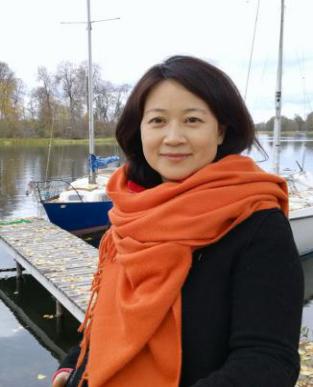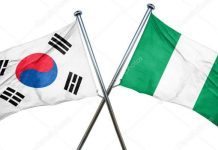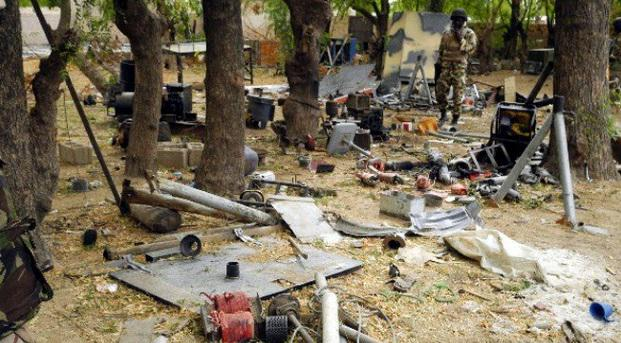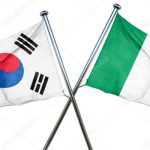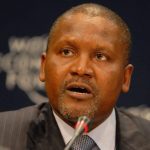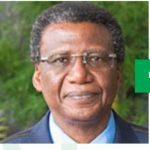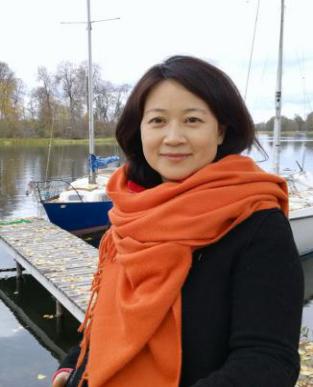
By Dr. Zhang Yanqiu
The COVID-19 pandemic poses severe challenges across the continents. The year 2020 has been one of the toughest years for every countries, and societies. However, along with ongoing threat of pandemic, the world has witnessed ever-growing tensions and uncertainty in the field of international relations, particularly of China and the United States. Undoubtedly, the changing reality has been inevitably shaping a new world order.
While China and the United States are on a collision course, how should we re-examine the relations of China and the world, China and Africa, as well as China and Europe? Under the changing reality, what are the potential strategic opportunities and solutions for China and world for this moment and the future?
These are hard but pertinent questions that the International Webinar on CHINA AND THE WORLD: CHANGING REALITY AND SHARED FUTURE sought to provide answers to last Friday.
Indeed, experts on international relations and communications gathered at a teleconference to x-ray and dissect the theme in its various dimensions with the aim of proffering suggestions.
The webinar was jointly organized on July 31, by the Institute for a Community with Shared Future (ICSF), a Chinese think tank initiated by the Communication University of China(CUC); Centre for New Inclusive Asia (CNIA), a Malaysia-based non – governmental think tank; and the Dialogue of Civilization Research Institute(DOC), Germany. The webinar aimed to promote new concept and solutions on the post Covid-19 pandemic and China’s relations to the US, Europe and Africa.
“Very few people want to experience a 21st-century addition of a bipolarity, as we have learned from the history,”said the CEO of DOC Research Institute in Germany, Mr. Jean-Christophe Bas. While criticizing the ongoing geopolitical divide based on ideology between China and the U.S., he called on the urgent need for building a new internationalism, and he stressed that the European will be willing to engage with partners and countries that are committed to cooperation and respects.


Prof. Li Huailiang, China
Dean of the Institute for a Community of Shared Future(ISCF) at CUC, Prof. Li Huailiang, elaborated the significance of building a Community with a Shared Future for Mankind, a new concept raised in recent years by China as both the guiding philosophy of China’s foreign policies and a new approach for international governance. He pointed out that the pursuit for cooperation, mutual respect and win-win relationship are values shared by all human beings that will provide new momentum for the world to forge ahead.
Talking on “Africa after COVID-19, the danger of great power competition to African development”, Dr. Cobus van Staden, who is the Researcher and Analysis Director of the China Africa Project, as well as the senior researcher in China-Africa Relations at SALLA’s Foreign Policy Programme in South Africa, expressed his worries and reflections on the impact of COVID-19 to Africa and the world. He said, “even there’s been pressure coming from the United States for countries to stop working with Huawei and China, African countries are trying to step away from this pressure to choose partners. Africa has many partners, and the United States, Europe and China are all important to Africa. ”, Clearly, it would be wise for Africa to maintain all of these relationships and work with more partners rather than being forced to choose among them. ”


Cobus van Staden speaking from Johannesburg, South Africa
He further warned that the danger of a global power competition to Africa could be grave. If development fail in Africa and poverty level continue to rise, terrorism would increase and African migration crisis will get worse.
As to China-Africa relations, Dr. Staden argued that “ this is the perfect time for China to really take Africa’s hand in moving forward towards a kind of global south-centered model for future development in a more constructive way not only getting over the COVID-19 crisis itself, but also solving multilateral problem in bigger challenges like climate change”.
While criticizing the ongoing geopolitical divide based on ideology between China and the US, “very few people want to experience a 21st century addition of a bipolarity, as we have learned from his story,”said the CEO of DOC Research Institute in Germany, Mr. Jean-Christophe Bas.
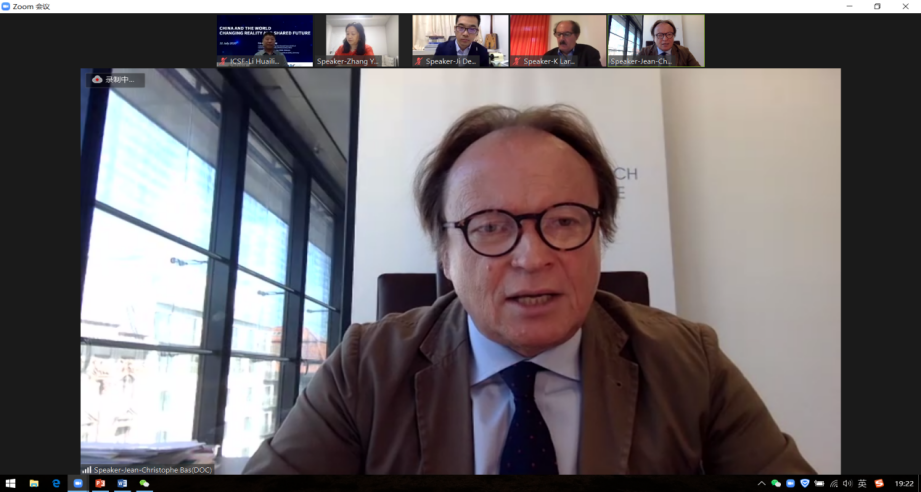

Jean-Christophe Bas, Germany
Mr.Bas called on the urgent need for building a new internationalism, and he also stressed that the European countries will be willing to engage with partners and countries that are committed to cooperation and respects.


Koh King Kee, Malaysia
Speaking on the topic, “China in the World Post Pandemic”, the president of the Center for New Inclusive Asia from Malaysia, Mr. Koh King Kee pointed out, China’s success in containing the COVID-19 has been seen as a threat to parliamentary democracy by the West in defending their democracy, therefore, China is facing a much more difficult international environment. According to Mr. Koh, China’s weakness in communicating to the rest of the world could impede its position as a leading power. He said that facing the unfriendly attitude from the West, China will show the world her determination, with the hope of improving international communication skills, of contributing to international development rather than messing up in the world post pandemic.
Reflecting on the current communication issues between China and the U.S., Dean, School of Journalism and Communication, Tsinghua University, China, Professor Shi Anbin, called a new way for China to practice digital diplomacy against the social media cold war. One successful case is the Chinese movie The Wandering Earth which is very popular in Netflix, a streaming service in the United States as one of the most popular choices for on demand TV shows and movies.
Participants further examined the tension between China and the United States and its significant implications to China and the world.


Kerry Brown, who is the Professor of Chinese Studies and Director of Lau China Institute of King’s College London, U.K., stressed that, “we can recognize that the Chinese government’s contribution to well-being, for its people, and we should also recognize that there are now more complex issues of human well-being and post capitalist societies”. He called on a new mechanism should be created to deal with practical issues faced currently by the human beings.
Professor Gao Zhikai, Vice President, Centre for China and Globalization, said the tension between the China and the U.S. in the next few months might be the most dangerous period in China-US relations in 40years. He stressed the need for the two to get along with each other and he expressed and explained his confidence about the medium term and longer term China-US relations.
The webinar conference gathered experts from over 10 academical and research institutes and universities from China, Germany, Malaysia, the UK, the US, Singapore and South Africa, with over 50 attendees. The sharing and discussion highly broaden the horizons on perspectives and opinions about the concept of ‘Community with Shared Future for Mankind’, together with its challenges and opportunities from different civilizations and backgrounds, which will be strongly helpful for the foundation of future development and academical network.
Professor Zhang Yanqiu is the Deputy Dean of the Institute for Community with Shared Future and Director of Africa Communication Research Centre at the Communication University of China, Beijing.

